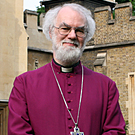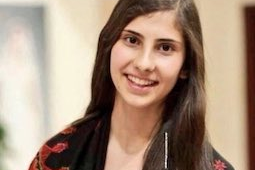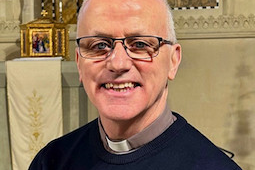Dr Rowan Williams urges Anglicans to listen to each other, consider other Christian views

Dr Rowan Williams
In a wide-ranging address to the General Synod in London yesterday, the Archbishop of Canterbury discussed the nature of human freedom and the value of listening and learning from one another, in both national and international debates, as well as those occurring during Synod this week.
The Archbishop began his address by urging caution in the debate on the Equality Bill:
"The basic conflict was not between a systematic assault on Christian values by a godless government on the one side and a demand for licensed bigotry on the other. It was over the question of how society identifies the point at which one set of freedoms and claims so undermines another that injustice results."
"The freedom of government to settle debated moral questions for the diverse communities of civil society is not something we should endorse too rapidly: governments and political cultures change, and it is a mistake to grant to governments authority that could impact on us in other and even weightier areas, whatever authority we grant government to define fundamental and universal legal entitlements in society at large.
"It cuts both ways. The diverse communities of civil society cannot and should not try to determine for the whole of society what legal freedoms should be granted to any particular category of people; but they will argue stubbornly for the freedom on their side to settle for themselves – not at the government's command – how they define the jobs people do publicly on their behalf as specific communities of belief or interest. It is blindingly obvious that there are grey areas here, and that this formulation does not absolve us from argument; it is equally obvious that civil society communities, even religious ones, may change their expectations and conventions. But looking at it strictly from the rather abstract viewpoint I have been taking here, what matters is that government acknowledges that there is a boundary that it is risky to cross without creating ideological powers for the state that could be deeply dangerous for liberty in general."
Dr Williams also addressed the question of assisted suicide and the dangers in trying to build a legal framework around it:
"The freedom of one person to utilise in full consciousness a legal provision for assisted suicide brings with it a risk to the freedom of others not to be manipulated or harassed or simply demoralised when in a weakened condition. Once the possibility is there, it will not only be utilised by the smallish number of high-profile hard cases but will also create an ethical framework in which the worthwhileness of some lives is undermined by the legal expression of what feels like public impatience with protracted dying and 'unproductive' lives.
"But most of us here, I suspect, would say that the balance of liberties still comes out against a new legal framework, and in favour of holding to the principle – not that life should be prolonged at all costs, but that the legal initiating of a process whose sole or main purpose is to end life is again to cross a moral boundary, and to enter some very dangerous territory in practical terms. Most of us would still hold that the current state of the law, with all its discretionary powers and nuances about degrees of culpability in extreme cases, serves us better than an opening of the door into provision for the legal ending of lives."
In speaking about the both Anglican Communion Covenant and also the debate on Women Bishops, Dr Williams stresses that 'people have a claim to be heard in their own terms':
"Here in the Synod, we face not only the question of how we are to frame legislation that, as I think I've said before in this context, has something of good news in it for everyone, not only for one group, but also the longer-haul question of how we go on learning from each other beyond the point of decision. Whatever we decide, we need to look for a resolution that allows some measure of continuing dignity and indeed liberty to all – in something like their own terms. It isn't enough to brush aside the problems some find with codes of practice or others find with the need for women bishops to transfer authority automatically. People have a claim to be heard in their own terms, just as we have been arguing in Parliament. And we have to make difficult judgements about whether granting this freedom to this group is more likely to undermine someone else's freedom than if the position were reversed. Only – as Christians we somehow have to add to that the question of how granting any freedom anywhere is going to set free the possibility of contributing to each other's holiness.
The Archbishop urged people to listen to one another with a 'three dimensionality':
"Seeing something in three dimensions is seeing that I can't see everything at once: what's in front of me is not just the surface I see in this particular moment. So seeing in three dimensions requires us to take time with what we see. It may help us look more critically at solutions that seek to do much all at once; and perhaps to search for structures that will keep open the ability to learn from each other."
As an example of where this 'three-dimensionality' may be seen, he said:
"But there is the simpler sense of three-dimensionality which just reminds us that the other we meet is the person he or she is, not the person we have created in our fantasies. The priest from Forward in Faith finds himself going to a woman priest for spiritual counsel because he has recognised an authenticity in her ministry from which he can be enriched. The Christian feminist recognises that the Resolution C parish down the road has a better programme for community regeneration than any other in the deanery."
He concluded by describing how a three-dimensionality can help Synod look beyond conflict and:
".... oblige us to ask not how we can win this or that conflict but what we have to give to our neighbour for sanctification in Christ's name and power. It will oblige us to think hard about freedom and mutuality and the genuine difficulty of balancing costs or restraints in order to keep life moving around the Body. It will deepen our desire to be fed and instructed by each other, so that we are all the more alarmed at the prospect of being separated in the zero-sum, self-congratulating mode that some seem to be content with...... And we may be able to show to the world a face rather different from that anxious, self-protective image that is so much in danger of entrenching itself in the popular mind as the typical Christian position. I deeply believe that this Church and this Synod is still capable of showing that face and pray that God will reveal such a vision in us and for us."
To read, or listen to the whole speech see: www.archbishopofcanterbury.org/2752
Source: Archbishop of Canterbury's office




















